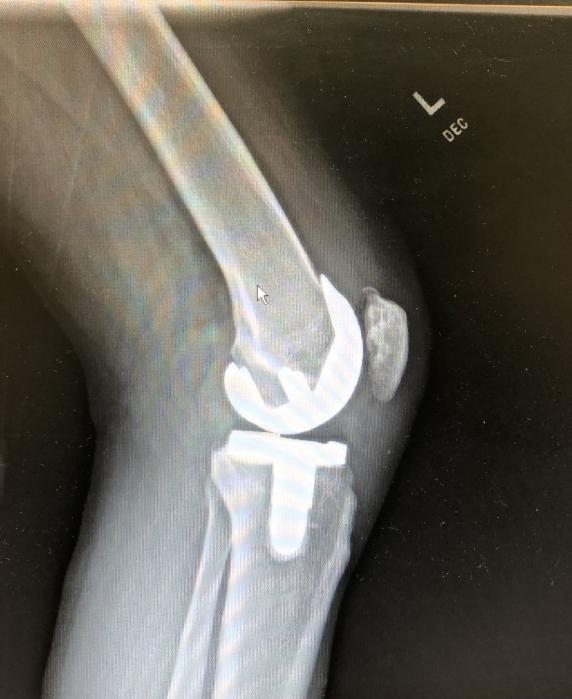Editor-in-Chief
- FMA
- The Fabricator
- FABTECH
- Canadian Metalworking
Our Publications
Categories
- Additive Manufacturing
- Aluminum Welding
- Arc Welding
- Assembly and Joining
- Automation and Robotics
- Bending and Forming
- Consumables
- Cutting and Weld Prep
- Electric Vehicles
- En Español
- Finishing
- Hydroforming
- Laser Cutting
- Laser Welding
- Machining
- Manufacturing Software
- Materials Handling
- Metals/Materials
- Oxyfuel Cutting
- Plasma Cutting
- Power Tools
- Punching and Other Holemaking
- Roll Forming
- Safety
- Sawing
- Shearing
- Shop Management
- Testing and Measuring
- Tube and Pipe Fabrication
- Tube and Pipe Production
- Waterjet Cutting
Industry Directory
Webcasts
Podcasts
FAB 40
Advertise
Subscribe
Account Login
Search
Robots are increasingly assisting in operating rooms
Robots that assist with knee surgeries help eliminate variances from one surgeon to the next
- By Don Nelson
- March 24, 2021
Robotic systems are used throughout manufacturing. They find application in everything from painting to welding to assembling to packaging to milling—to 3D printing. And, increasingly, robots are being used in operating rooms to assist with surgeries.
An article in the next issue of The Additive Report looks at the use of additive manufacturing to build artificial knees and the growing utilization of robots that help surgeons implant them.
The president of Stryker’s Digital, Robotics, and Enabling Technologies, Robert Cohen, said that 42% of the knee replacement surgeries the company currently assists U.S. hospitals with involve its Mako surgical robot.
He called that percentage “unbelievable,” because Stryker introduced the knee surgery robot just three years ago. “If you look at technology transformation in marketplaces, this is one of the more rapid adoptions of a technology,” Cohen said, adding that robotic knee surgery is safer and more accurate than manual surgery and shortens patient recovery time.
The implant process begins with a CT scan of the patient’s knee. Stryker then works up a 3D model of the knee and connecting bones, ligaments, and cartilage, along with a virtual model of the implant.
“For the surgeon, we position the virtual models of the femur and tibia exactly on your bone rotation—X-Y-Z, tilt, slant—everything you could possibly need to match you individually,” Cohen explained. “And then we re-establish your joint line exactly, in three dimensions. We take all that into account and prepare a [surgical] plan for the surgeon.” The program also features safeguards like stopping the saw instantly once it finishes cutting through a bone, which prevents soft-tissue damage and minimizes variance in surgical technique from one surgeon to the next.
Cohen expects that one day robotic assistance will be the norm for all knee implant surgeries.
About the Author

Don Nelson
2135 Point Blvd.
Elgin, IL 60123
(815)-227-8248
About the Publication
- Podcasting
- Podcast:
- The Fabricator Podcast
- Published:
- 04/16/2024
- Running Time:
- 63:29
In this episode of The Fabricator Podcast, Caleb Chamberlain, co-founder and CEO of OSH Cut, discusses his company’s...
- Trending Articles
- Industry Events
16th Annual Safety Conference
- April 30 - May 1, 2024
- Elgin,
Pipe and Tube Conference
- May 21 - 22, 2024
- Omaha, NE
World-Class Roll Forming Workshop
- June 5 - 6, 2024
- Louisville, KY
Advanced Laser Application Workshop
- June 25 - 27, 2024
- Novi, MI



























